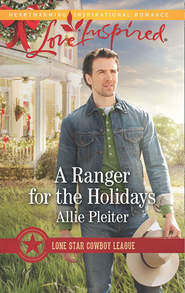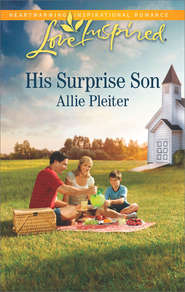По всем вопросам обращайтесь на: info@litportal.ru
(©) 2003-2025.
✖
Queen Esther & the Second Graders of Doom
Автор
Год написания книги
2018
Настройки чтения
Размер шрифта
Высота строк
Поля
Doug chuckled when Essie called him to alert him to the incoming fax.
He was laughing out loud when he delivered the seventeen-page document into her hands that night. Seventeen pages.
Essie pulled off the cover sheet expecting to find half a dozen articles on the proper spiritual education of second-grade boys. What she found couldn’t have surprised her more.
In her hands was an extensive analysis of Stanton Mannington’s spiritual strengths and weaknesses. Dahlia had actually taken one of those books with tests to help someone discover their “spiritual gifts”—things like hospitality, wisdom, leadership, prophecy—and filled it out for Stanton. There were no less than ten pages of test scores, four pages of commentary and three pages of Dahlia’s recommendations for Stanton’s areas of potential ministry.
All this for a seven-year-old boy.
Maybe “thorough” wasn’t quite the word to describe Dahlia Mannington.
Mouth open, Essie stared at Doug. He looked as baffled and amused as she felt. “That lady tied up my fax machine for eleven minutes. Next time tell her I’ll swing by on my way home.” He pointed at the packet. “What in the world is that thing, anyway?”
“Test results. Dahlia Mannington filled out one of those spiritual gifts tests for Stanton. Then she interpreted the results. Extensively. It’s a what-you’re-good-at, where-you’d-do-well kind of thing. For adults.”
Doug looked skeptical. “Like those tests we used to take our senior year in high school? To tell us what to major in?”
“Same principle, just applied to the different types of spiritual gifts Paul mentions in the Bible. Someone took the idea of Paul’s that each of us is wired by God for different types of service, and applied the idea to those school tests.” Essie narrowed her eyes. “It’s fascinating, actually.” She fluttered the papers. “But this is just crazy.” She fanned through the thick, official-looking packet again. “Look at this—can you believe she did this?”
Doug smirked. “Somehow I think Mark-o has a thick file of paperwork on each of the Mannington children. Probably the parents, too.” He parked his briefcase in its designated spot by the front-door umbrella stand and tossed his keys onto the hall table. “I admit, it’s weird, but still, when is the last time you met someone who took their child’s spirituality so seriously?”
“‘So seriously’?” Essie cocked an eyebrow. “I think this qualifies as too seriously. Stanton’s only seven. How’s anyone supposed to have any idea what his spiritual gifts are? Why does anyone even need to know? I’m sorry, but this qualifies as wa-a-ay over the top.”
Doug crossed his arms over his chest and laughed. “This, from the woman who spent the last year groaning to me about parents who didn’t care enough, who wouldn’t get involved, or didn’t think track and field ranked anywhere near football in importance. Now you’ve got yourself a parent who pays a boatload of attention and you’re griping?”
He was teasing her, she knew it, but it still got under her skin. “This is overboard, Douglas Walker, and you know it. I can spot this kind of parent a mile off, and it’s never good. I’m going to have Dahlia Mannington and her spiritual recommendations breathing down my neck and I’m not happy about it.”
“Well, I was wondering if she’d pull something like that.” As they sat in his office the next morning, Mark-o’s reaction told Essie that this was not at all out of character for Dahlia Mannington. With a wince, Essie remembered that it was Dahlia who had “commissioned” the Ph.D. student to write a simple Sunday school drama. Simple, it seemed, was not in Dahlia’s vocabulary.
Essie shot her brother a sidelong look. “You knew she would do this. She’s done this before. Mark Andrew Taylor, you knew exactly what you were letting me in for. Shame on you, duping your little sister.”
“Hey, you’re the one who told me you wanted to learn about raising boys. I distinctly remember you saying during some dinner at Mom and Pop’s that you knew enough about teenagers, but needed to figure out how little boys worked. That’s a wide-open door in my book. I just figured God was being obvious.”
Essie leveled a look at her brother that she hoped told him such a story wasn’t working. Understanding little boys was one thing. Corralling them into higher levels of spiritual development without major bloodshed—well, that was quite another. “You knew about Dahlia.”
He acquiesced. “Okay, I knew Dahlia was a handful. But I also knew Cece Covington was in there, too, and you two have seemed to hit it off.”
Essie couldn’t argue with that. She and Cece had met for coffee twice since that first committee meeting. Every minute of happy grapefruit-spoon quiet proclaimed that Cece was a mom who knew her stuff. Plus, it was just plain fun to be with someone who declared for certain that children aren’t in diapers forever and they do actually sleep through the night eventually. “Still…Mark-o, Dahlia’s one of those. You know how I hate them. Next thing she’ll be telling me I can only use recycled drawing paper or organic crayons. Soon, I’ll be getting magazine articles in the mail, and then it will be e-mails with links to Web sites helping me to teach The Lord’s Prayer in Latin to grade-schoolers.” She was on a roll now, imagining all kinds of havoc Dahlia Mannington and her kind could wreak in her classroom. “She’s one of those, Mark-o, and you did this to me!”
To her surprise, this got his back up. She’d gone too far—she knew it the minute he set down his coffee mug with a loud clank. “I think, Esther—” and it was never good when he called her Esther “—that you ought to give Dahlia half a chance before you stick her in some box marked ‘those’ and write her off as nothing but a nuisance.”
Mark-o had always had the ability to halt one of her tirades in a single sentence.
“If one quarter of the people in this church cared half as much as Dahlia and Arthur do about spiritual growth,” he continued, lowering his voice again, “Bayside would be an astounding place. Sure, Dahlia’s a bit of a pain, but I tell you, Essie, we’re all a bit of a pain. If I had a dozen more like her there’d be no telling how much we could do here. No telling. Don’t label her. It’s not fair.”
Since when was life fair?
Chapter 6
Play to the Strengths
Essie changed her own clothes twice, and Josh’s three times, before declaring herself ready for the Manningtons’. For all its exclusivity, the area wasn’t hard to get to—Essie was still surprised at how easy it was to navigate San Francisco. Most of her home state couldn’t be called pedestrian-friendly—a car was essential to one’s very existence. She’d been reluctant to take only one car to San Francisco, but everyone’s insistence that she would rarely need it finally won out. Even encumbered by baby, stroller and diaper bag, it was still unbelievably easy to get around—except for pushing the stroller up all those hills.
Dahlia’s house was on the ritzy side of town, away from the T-shirt shops and silkware stands of the tourism center. Here, tourism rarely crept in to spoil the carefully crafted atmosphere. Each house looked like its own perfectly composed watercolor painting. Charming little gates and artistic walls tucked each family into its tiny, manicured kingdom. No one had a mere yard and house here—no, here it was all “landscaping” and “architecture.”
Essie maneuvered Josh’s stroller up the small, curving walkway, then took a deep breath and pressed the doorbell. A dignified chime echoed from inside the artfully carved door. Essie checked her own outfit and made sure Josh hadn’t repeated his favorite trick of removing his socks. After a short pause, the locks began to rattle and a small woman in a blue dress pulled the massive door open.
“Hello,” Essie blurted out, her voice revealing more tension than she would have liked. “I’m here to see Mrs. Mannington. I’m Esther Walker.”
The woman produced a rehearsed smile and reached down to help hoist the stroller over the threshold. “She’s expecting you. I’ll show you to the sunroom.”
The sunroom. Uh-oh, that sounded far too spiffy. Maybe she should have worn a skirt or something. Or a twinset. She should probably have gone out and gotten a twinset.
Now wait a minute, you hate twinsets. Essie gave herself a little pep talk as she went through the rigors of detaching Josh’s carrier from the stroller mechanism, removing his sweater and all the other details involved in transporting a now sleeping Josh into the sunroom.
This is a parent, Essie, plain and simple. You’ve gone into battle with football dads who can’t understand why their son isn’t captain of the track team as well as starting quarterback, you’ve dealt with schedule-crazed moms who want you to excuse their little darling from practice so she can get the only open manicure appointment; you’ve dealt with far worse with far more at stake. Don’t tense up now. You’re going to spend twenty minutes listening to every good and perfect character trait of Stanton Mannington, eat some free pastries, drink some decent coffee and nod a lot. That’s all you have to do.
As she walked through the well-appointed house, devoid of undone laundry, strewn toys, or any other signs of juvenile life, Essie couldn’t shake the feeling that this wouldn’t be that simple at all.
“Oh, Essie, I thought that’d be you. Did you have any trouble getting here?” Dahlia rose elegantly from her wrought-iron bistro chair and reached out a hand to take Josh’s carrier.
“Not at all. I’m still getting used to how easy it is to get around here.”
“And your little one is out cold, just like you said.” She smiled warmly down at Josh, touching a little green sock with a tender hand. “I miss the socks most of all. The tiny little socks in such fabulous colors. He’s darling.” She settled the carrier into a chair placed beside the table—just for the purpose of holding Josh, Essie suspected. The woman never missed a detail. “Now, Pastor Mark told me you drink coffee, so I had Carmen brew up some decaf because I remembered you’re still nursing. Carmen makes fabulous coffee—even decaf—so drink the whole pot if you like.” Dahlia motioned for Essie to take a seat in the other chair. The table was set like something out of a department store display—fresh flowers, starched napkins, rattan place mats, gorgeous china.
On cue, Carmen reappeared, bearing a tray of goodies. The scent of the sweet rolls could have made a grown man salivate, much less a mom who’d quickly downed a plastic bowl of wheat flakes an hour ago. A set of twin miniature coffee carafes took their place at the table—one with the universally recognized orange “decaf” marking, only this one was an elegant beaded clip rather than a plastic dot. Dahlia’s idea of “just whip something up” was a lot different than most of the world’s standards. Well, most of Essie’s world, anyway.
“Wow,” Essie commented. “This looks great.”
“Carmen knows her way around the kitchen, that’s for sure.” Dahlia tossed Carmen an efficient nod. “Gracias.” She poured herself coffee and whipped out the familiar Montblanc pen and leather notepad.
“Yes,” added Essie, looking up at Carmen. “Thank you.”
“So, how’s the class?” Her voice had the musical tone of someone who was being polite, but taking mental notes. Lots of them.
“They’re a…spirited lot, that’s for sure. It’s not hard to see where the nickname came from.”
That got a look from Dahlia. “I’ve never liked the nickname myself. I believe children rise to the expectations you set for them. Call them doom, you’ll get doom. I’ve never been asked to teach the class myself, but I can’t imagine that all that energy can’t be channeled with the right techniques.”
Essie had heard some version of that speech dozens of times in her teaching career. The women’s-magazine-TV-talk-show lingo of the enlightened parent. The parent who didn’t believe in “C” s. Who felt that defiant children simply “weren’t being challenged.” The kind of mom who would never let their child mix cookie dough with their fingers or roll down a hill that might cause grass stains, but signed them up for French lessons when they were five. The parents who inserted their children—whatever their shape—into neat, successful, boxes chock-full of brilliant potential.
“Seven-year-old boys are bundles of energy.” It was a poor response, but it was all Essie could think of to say. Last week Stanton had pushed up the tip of his nose with his finger and made pig sounds through the entire reading of the Bible story. She wasn’t sure “the proper channel” had anything to do with that kind of behavior.
“Well, Stanton certainly is high-spirited.”
Ah, there it was. That phrase. “High-spirited” was one of Essie’s favorite euphemisms. Kids weren’t bouncy or hyper or fidgety anymore, they were “high-spirited.” As if the inability to sit still for thirty seconds was an early symptom of visionary thinking.
“I hope you’re not finding him too challenging.” There was an edge to Dahlia’s voice. Not quite a challenge, but not quite an actual question, either.











